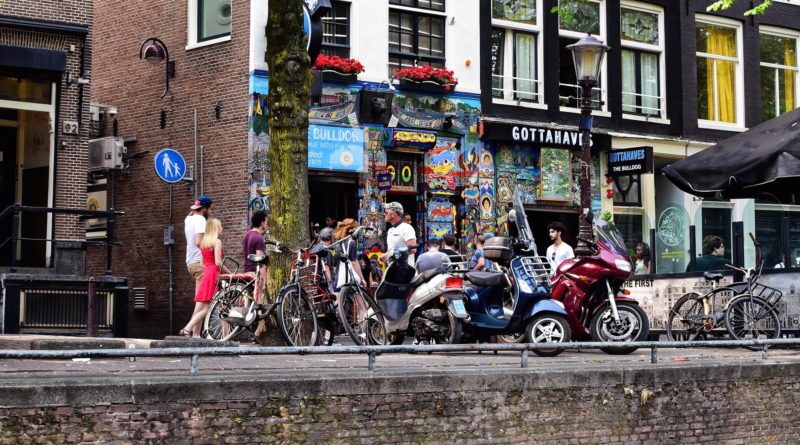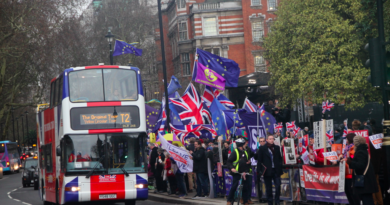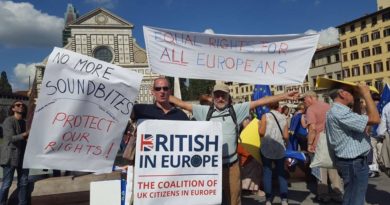Petition launched to allow dual citizenship for Dutch nationals
A petition launched on Friday calls on the Dutch government to allow dual citizenship for Dutch nationals living abroad. Pressure is mounting as a growing number of people living in the UK are applying for naturalisation to protect their rights after Brexit. But in most cases, for people from the Netherlands obtaining another passport means losing Dutch citizenship.
The initiative, named ‘Eens Nederlander, altijd Nederlander’ (Once Dutch, Forever Dutch) received 11,000 signatures in 48 hours. It needs 40,000 to be considered in parliament.
The petition was launched by five Dutch citizens living outside the country. Among them there is Monique Hawkins, who made news last year because the UK Home Office rejected her application for permanent residence although she had been living in the country for 24 years and her husband and kids are British. Since then, she obtained permanent residence and became a British citizen. She was also able to maintain the Dutch citizenship, but now she fears this could easily be lost.
“I could have double citizenship because I am married to a British, but if for any reason I won’t be able to renew my Dutch passport on time in the future, I will lose not only the Dutch but also the EU citizenship. It’s outrageous,” she says.
The other promoters of the petition are Eelco Keij, Jan Joosten, Nicole Wevers and Hedwig Hegtermans. The petition calls on the incoming Dutch government to reform current rules, so that Dutch nationals who take another passport can keep Dutch citizenship as well. They also request to establish a way to recover Dutch citizenship when this is inadvertently lost. According to estimates, there are between 800,000 and 1.2million people from the Netherlands living abroad.
“The Dutch government wants to limit dual nationality as much as possible. If you have only one nationality, it will be clear what your rights are,” explains the government website. There are few exceptions to the rule, such as being married to a person of another country or being born abroad. But even in these cases, there are strict conditions to maintain a Dutch passport and a delay in renewing it might be enough to lose citizenship. Many people are not aware of such conditions.
In the TV programme EenVandaag on Friday, Danielle van Dijk, a Dutch living in Leicester and married to a Nigerian, was in tears at the discovery she was no longer considered a citizen in their country of origin. Three years ago she was naturalized British with her husband and she found she had lost her rights as a Dutch only when she went to the Embassy in London to renew her passport.
Eelco Keij, a politician and advocate for the rights of Dutch abroad, has been able to take another nationality being married to an American. “Why would you want to exclude from the country bright, adventurous people, who have great connections in the world? We are still dealing with an old-fashioned definition of citizenship. In the past people used to move from one country to another and settle there. Now people move, come back and move again and the internet helps staying connected with your place of origin,” he says. “Portuguese and Italians understood that mobile people are assets, we should do the same.”
In 2012 Keij promoted another petition to stop a bill aiming to restrict rules even further. The proposed law was blocked but the issue remained a hot topic. The debate was revived in April, when a majority of Turkish people in the Netherlands voted in favour of constitutional changes that gave Turkish President Erdogan new authoritarian powers.
The same discussion is occurring in Germany, where part of the Christian Democratic Union, the party of Angela Merkel, proposes to revise current laws, while the Chancellor defends them.
Germany allows dual citizenship for nationals of EU countries and Switzerland, for children born from German parents and for children of permanent residents under certain conditions. In other situations a specific permission has to be requested.
Other countries in Europe, such as Austria and Estonia, do not allow dual citizenship. Poland does not forbid it, but Polish people need to qualify themselves as such to the authorities of the country (e.g. when passing border controls). Restrictions apply in Lithuania, Latvia, Slovakia and Slovenia. Spain allows dual nationality only for people from Portugal, Andorra and some countries of Latin America. Britons in Spain will therefore have to give up their British passport if they want to obtain a Spanish one and maintain EU citizenship post Brexit.
In the wake of the EU referendum, the number of EU nationals seeking British citizenship has surged, according to figures published by The Times. In the first quarter of 2017, the number of EU citizens applying for a British passport reached 9,400, three times as many as in the same period of 2016. Applications from France, Germany and Italy have more than quadrupled.
Claudia Delpero © all rights reserved.
Photo: Amsterdam, via Pixabay.





That’s is why I asked all my family members all around the world ; please sign this petition! We don’t want to lose our Dutch nationality / nationaliteit !
People should be able to have a dual nationality so that they can travel easy between both countries. It is also as a way to promote the country ‘s image and a prime destination for tourists of both countries.